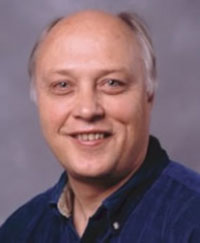
By Robert C. Koehler
“And some of us who have already begun to break the silence of the night have found that the calling to speak is often a vocation of agony, but we must speak.”
Take a day, pore over a few of his words. I’m talking about Dr. Martin Luther King, Jr., of course. His “day” is over, but his message still pulsates. We must speak!
The world is bleeding with the wounds of war and poverty and racism, just as it was 57 years ago, when he spoke — infamously, you might say — at Riverside Church in New York City. He defied LBJ and stared directly into the muzzle of the Vietnam war, declaring it to be moral savagery, declaring the United States to be “the greatest purveyor of violence in the world today.”
We’ve given King a national holiday, made him a national hero — but that’s not the same thing as listening to him. It may be the opposite. Deifying him, turning him into a statue, revering his image, could amount to simply shutting him up.
So I devoted a few hours of his national holiday (actually, the day after) to rereading “Beyond Vietnam,” the speech he gave on April 4, 1967, a year to the day before his assassination. His words aren’t merely critical of the cruelly pointless colonial war, or of the irony of the American public “watching Negro and white boys on TV screens as they kill and die together for a nation that has been unable to seat them together in the same schools.”
His words stir together love and hell, despair and hope. His words are deeply prescient:
“The war in Vietnam is but a symptom of a far deeper malady within the American spirit, and if we ignore this sobering reality . . .” Oh my God! Our wars will go on and on and on, unless we change as a country: fundamentally, spiritually.
No wonder J. Edgar Hoover (and so many others behind the scene) saw him as a danger to the nation who needed to be shut up, if not eliminated. He had already helped defeat segregation and had begun undoing systemic racism. Now he was taking on military-industrialism and American hegemony:
“A true revolution of values will soon look uneasily on the glaring contrast of poverty and wealth. With righteous indignation, it will look across the seas and see individual capitalists of the West investing huge sums of money in Asia, Africa, and South America, only to take the profits out with no concern for the social betterment of the countries, and say, ‘This is not just.’ It will look at our alliance with the landed gentry of South America and say, ‘This is not just.’ The Western arrogance of feeling that it has everything to teach others and nothing to learn from them is not just.”
What scared the nation’s leaders weren’t simply MLK’s words but the fact that he wielded remarkable power — a kind of power incomprehensible in political and military circles, a power that acknowledged humility and human oneness. What the hell is he talking about?
“Perhaps a new spirit is rising among us.”
And King was one of the carriers of that spirit — helping to implant it within the social core:
“I am convinced that if we are to get on the right side of the world revolution, we as a nation must undergo a radical revolution of values. We must rapidly begin the shift from a thing-oriented society to a person-oriented society. When machines and computers, profit motives and property rights, are considered more important than people, the giant triplets of racism, extreme materialism, and militarism are incapable of being conquered.”
It’s one thing to blather about America’s star-studded “official” values — life, liberty, blah blah blah — but it’s something else entirely to speak about transcending, indeed, “conquering” the (secretly) real values of the ruling class.
“Our only hope today lies in our ability to recapture the revolutionary spirit and go out into a sometimes hostile world declaring eternal hostility to poverty, racism, and militarism.”
A world that has truly transcended war? A world that embraces “unconditional love for all mankind”?
“When I speak of love,” he goes on,
“I am not speaking of some sentimental and weak response. I am not speaking of that force which is just emotional bosh. I am speaking of that force which all of the great religions have seen as the supreme unifying principle of life. Love is somehow the key that unlocks the door which leads to ultimate reality.”
And my imagination — my sense of possibility — reopens. This is what MLK still brings to humanity: a vision of the future that is profoundly different from the present moment, but also present, desperately present, in this moment. “Tomorrow is today.”
His words unite every religion on the planet. They tear the deepest values we espouse out of the holy books and bring them aboard the bus, across the bridge, into the halls of Congress and into every war room on the planet.
Their spirit still rises.
Robert Koehler (koehlercw@gmail.com), syndicated by PeaceVoice, is a Chicago award-winning journalist and editor. He is the author of Courage Grows Strong at the Wound, and his newly released album of recorded poetry and art work, Soul Fragments.


Be the first to comment